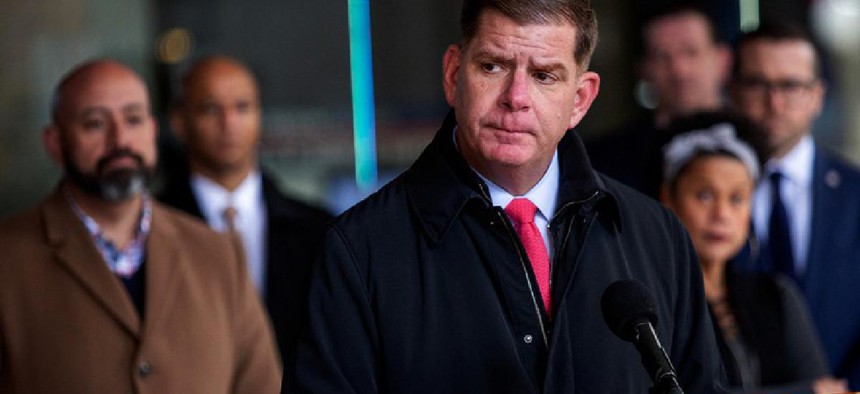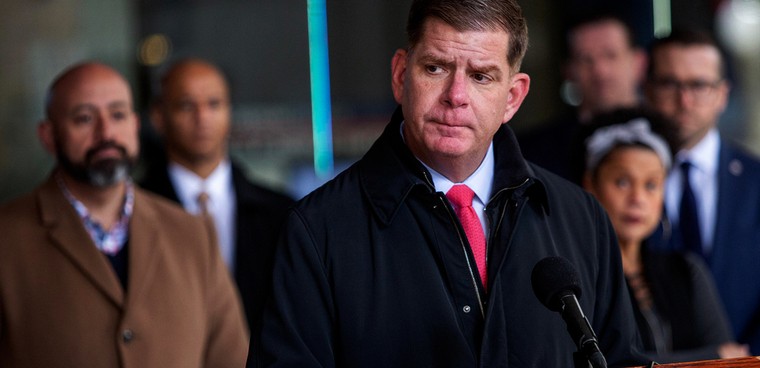$2.1 billion in UI modernization comes with oversight

Labor Secretary Marty Walsh told a panel of House Appropriators that the agency's planned $2.1 billion investment in state unemployment systems needs oversight and monitoring, and metrics for measuring success.

Labor Secretary Marty Walsh (Photo credit: vasilis asvestas / shutterstock.com)
The Labor Department is asking for $100 million in fiscal year 2022 to back the development of information technology for states to administer unemployment insurance, on top of $2 billion already committed in the American Rescue Plan Act for the same purpose.
Agency chief Marty Walsh stressed the seriousness of the problem and the importance of oversight and measuring success of investments in state unemployment tech during a House Appropriations subcommittee hearing on Wednesday devoted to the Labor Department budget.
"These investments focus on deep needs…that have been clearly needed and often cruelly exposed by this pandemic, but they're not new," Walsh said.
The secretary has been vocal about his commitment to working on UI modernization since his nomination. The antiquated systems of many states have been overwhelmed as the number of applicants spiked during the pandemic. The agency's own internal watchdog and many members of Congress have called on DOL to take a more active, central role in UI administration.
"This will be one of the top areas that I work on as Secretary of Labor, to make sure that something like this doesn’t happen, God forbid we have a pandemic in the future…we have to have a system that works for everyone," he said.
Walsh told lawmakers that between $600 million and $700 million of the $2 billion from the latest round of pandemic legislation is slated for technical assistance for states, but during questioning from Rep. Josh Harder (D-Calif.), said that the funds haven't been spent yet.
Harder said: "It often feels like Groundhog Day where every single economic crisis, we have the same conversation about how broken our unemployment system is," he said. "My question for you is how are we going to know if we fix it?"
Walsh replied: "One way you can tell if it's fixed is the way people are treated on unemployment. If they need unemployment benefits, they apply, they get them. And when they don't need them anymore they don’t get them," he said. "I heard every single day about somebody waiting to get unemployment benefits" as mayor of Boston.
Walsh also stressed the importance of oversight.
"We, the Department of Labor, need to put a process, a check and balance in place so that we can monitor these systems across the country to make sure they're working because, again, a $2 billion investment and then I think we're asking for another $100 million in this budget, that's a large investment to make in a UI system and get nothing back for it."
There's interest in Congress in making sure the UI funding works to improving state systems. Sen. Ron Wyden (D-Ore.) and Rep. Steven Horsford (D-Nev.) introduced a bill in February to overhaul UI technology by giving DOL funds to develop modular technology solutions to common UI problems – enrollment, eligibility, claims – that states can piece together to create modern systems. The bill's sponsors and other Democrats have encouraged Walsh to use their bill as a guide to spending the funds given in the American Rescue Plan.



